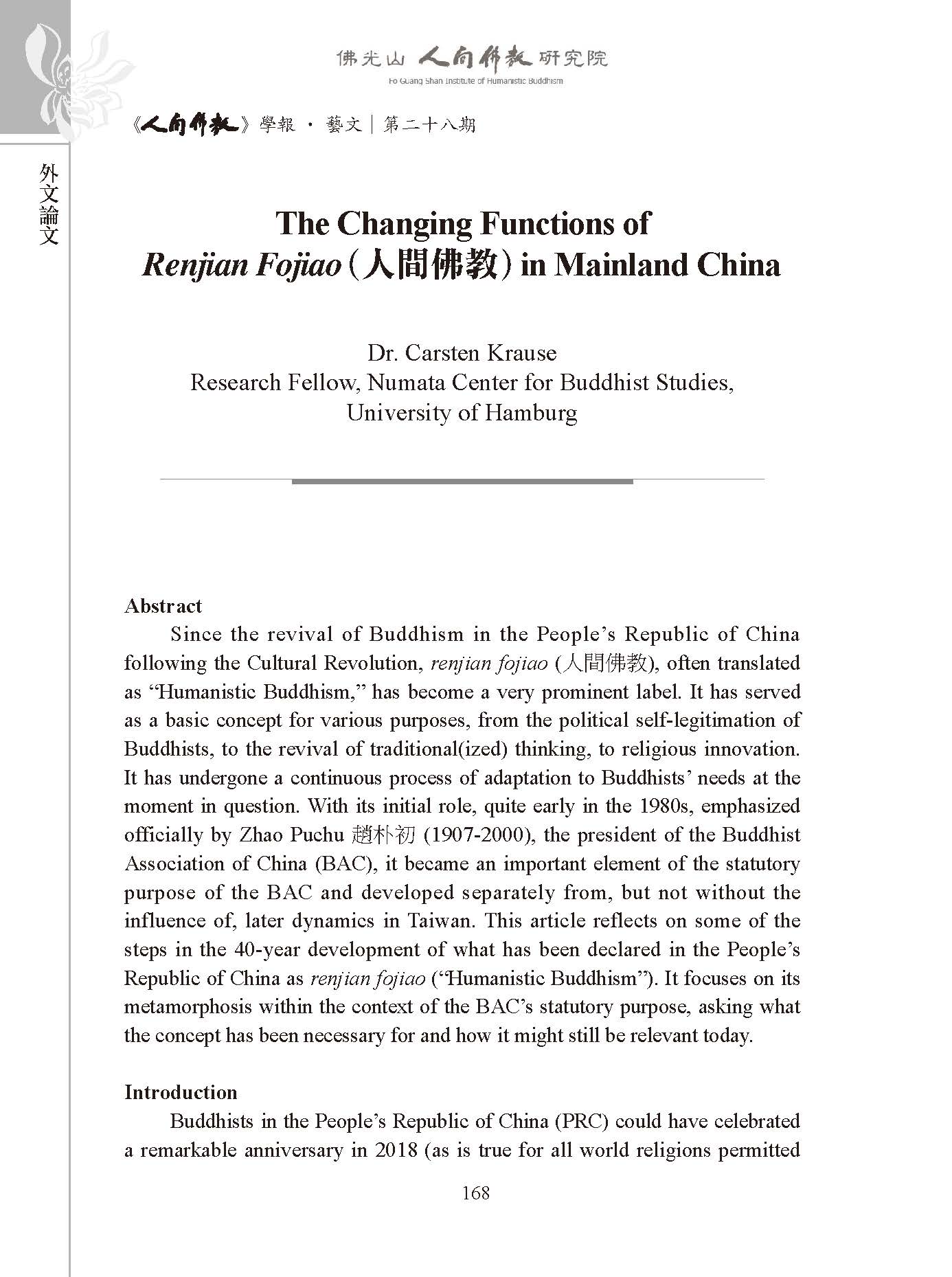
|
The Changing Functions of Renjian Fojiao (人間佛教) in Mainland China
分類
論文
期別
《人間佛教》學報‧藝文第28期
作者
Carsten Krause
其他名稱
人間佛教在中國大陸的功能轉型
編者
妙凡、蔡孟樺主編
摘要
Since the revival of Buddhism in the People’s Republic of China following the Cultural Revolution, renjian fojiao (人間佛教), often translated as “Humanistic Buddhism,” has become a very prominent label. It has served as a basic concept for various purposes, from the political self-legitimation of Buddhists, to the revival of traditional(ized) thinking, to religious innovation. It has undergone a continuous process of adaptation to Buddhists’ needs at the moment in question. With its initial role, quite early in the 1980s, emphasized officially by Zhao Puchu 趙朴初 (1907-2000), the president of the Buddhist Association of China (BAC), it became an important element of the statutory purpose of the BAC and developed separately from, but not without the influence of, later dynamics in Taiwan. This article reflects on some of the steps in the 40-year development of what has been declared in the People’s Republic of China as renjian fojiao (“Humanistic Buddhism”). It focuses on its metamorphosis within the context of the BAC’s statutory purpose, asking what the concept has been necessary for and how it might still be relevant today.
引文
Carsten Krause, " The Changing Functions of Renjian Fojiao (人間佛教) in Mainland China, " 《人間佛教》學報‧藝文第28期 (2020): 168-193
全文下載











